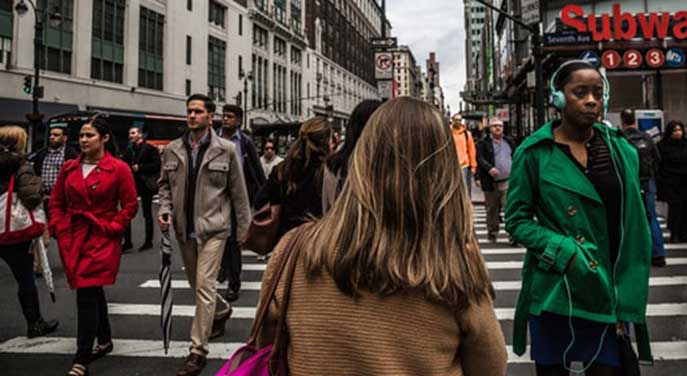 One of the favourite myths peddled by proponents of government control is that under the free-market system discrimination is rife and leads to unfair outcomes for minorities, women, and other groups. Thus, they say, we need government regulation to correct this unfairness and equalize outcomes.
One of the favourite myths peddled by proponents of government control is that under the free-market system discrimination is rife and leads to unfair outcomes for minorities, women, and other groups. Thus, they say, we need government regulation to correct this unfairness and equalize outcomes.
The myth persists despite having been repeatedly debunked over decades, and indeed, the evidence overwhelmingly shows that the opposite is true.
The first economist to really study the issue of racial discrimination was Gary Becker in the 1950s. Becker was a student and later a colleague of Milton Friedman, who also wrote wisely about the relationships between capitalism, regulation, and discrimination. Both taught at the University of Chicago, and both won the Nobel Prize – Friedman in 1976, Becker in 1992.
One of Becker’s key insights was that, contrary to the claims of Marxists, discrimination is costly for the people doing the discriminating. An employer who refuses to hire some workers based on skin colour, for example, will have a smaller pool of potential workers to hire from and so must either pay a higher price for workers or settle for less productive ones.
“Becker showed that discrimination will be less pervasive in more competitive industries because companies that discriminate will lose market share to companies that do not,” notes the Concise Encyclopedia of Economics. “He also presented evidence that discrimination is more pervasive in more-regulated, and therefore less-competitive, industries.”
Free and competitive markets do not completely eliminate discrimination, but they do impose a cost on those who unfairly discriminate, thereby significantly reducing the amount of it that takes place. But companies that benefit from government protection or support can better afford to incur these extra costs and so are more able to engage in discrimination with impunity.
What is true for companies is also true for unions, as the labour market operates similarly to markets for the goods and services that companies sell. And indeed, minimum wage laws championed by unions are perhaps one of the best examples of government regulation enabling harmful discrimination against minorities that would have been far more costly in a freer market.
In fact, the first federal minimum wage law in the United States, the Davis-Bacon Act of 1931, was supported by union leaders with the stated intention of preventing black workers from competing with unionized white workers for construction jobs. Unions in apartheid South Africa also supported minimum wage laws in order to price black workers out of the labour market.
In a free market, the unions reasoned, employers who refused to hire black workers would have to pay more for labour, and so discrimination would be costly. But the minimum wage law effectively stripped black workers of the option of offering to work for lower wages and thus punishing employers who discriminate against them. This was a win for unionized white workers, who therefore faced less competition for jobs.
History is replete with many other such examples of the benefits of free markets in curtailing unfair discrimination and the harm caused by governments in increasing it. “It is a striking historical fact,” Milton Friedman observed in his book Capitalism and Freedom, “that the development of capitalism has been accompanied by a major reduction in the extent to which particular religious, racial, or social groups have… been discriminated against.”
For less unfair discrimination, then, what we need is more capitalism and less government.
Matthew Lau is a fellow at the Montreal Economic Institute.
Matthew is a Troy Media Thought Leader. For interview requests, click here.
The views, opinions and positions expressed by columnists and contributors are the authors’ alone. They do not inherently or expressly reflect the views, opinions and/or positions of our publication.
© Troy Media
Troy Media is an editorial content provider to media outlets and its own hosted community news outlets across Canada.


